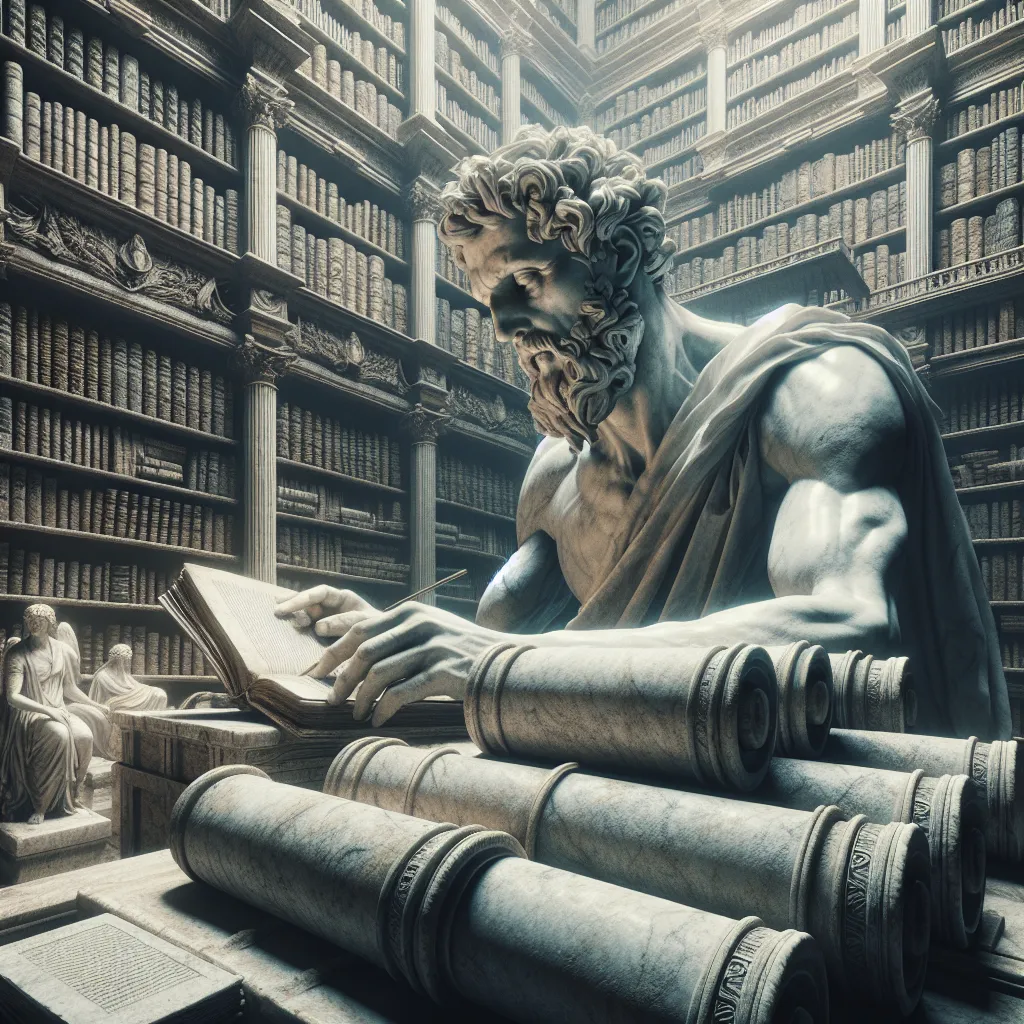
- Published on
- Authors

- Name
- You
The Impact of Crowleys Writings on Esoteric Literature
Introduction
Aleister Crowley, often dubbed "The Great Beast," is an enigmatic figure whose prolific writings have left an indelible mark on the world of esoteric literature. His corpus is expansive, encompassing poetry, fiction, and non-fiction works, each brimming with spiritual insight and occult wisdom. Despite the controversies surrounding his life, Crowleys literary contributions have profoundly shaped contemporary understandings of mysticism and magick.
1. Poetry: The Alchemical Nature of Words
Crowleys poetry is a captivating fusion of artistry and profound spiritual philosophy. His verses are a testament to his belief in the alchemical power of words to transform the soul. In anthologies such as "The Sword of Song" and "The Book of Lies," Crowley uses intricate symbolism and mythological allusions to convey complex esoteric concepts.
Table: Key Poems and Their Themes
| Poem | Collection | Themes |
|---|---|---|
| "A Birthday" | The Sword of Song | Mystical union, spiritual celebration |
| "The Soldier and the Hunchback" | The Book of Lies | Duality, philosophical inquiry |
| "The Pentagram" | Poetical Works | Magick, symbolism, protection |
2. Fiction: Stories That Enchant and Educate
Crowleys fiction, while often overshadowed by his theological and philosophical works, provides a rich tapestry of esoteric mythology woven into compelling narratives. His novel "Moonchild" (1917) is a prime example, blending autobiographical elements with a mythical tale of a magickal battle. Crowleys fiction often served as a coded communication of his deeper spiritual teachings, making the arcane accessible through storytelling.
Excerpt from Moonchild
"Do what thou wilt shall be the whole of the Law." He whispered the sacred words, and the candle's flame flickered as if acknowledging the eternal truth of his mantra.
3. Non-Fiction: The Blueprint of Modern Magick
Crowleys non-fiction works are perhaps his most impactful contributions, laying the groundwork for modern Western occultism. Texts such as "The Book of the Law" (1904), "Magick in Theory and Practice" (1929), and "The Equinox" (a journal series from 1909 to 1922) delve into the practical and theoretical aspects of magick, offering a comprehensive framework for spiritual practice.
Table: Major Non-Fiction Works and Their Contributions
| Work | Year | Contribution |
|---|---|---|
| The Book of the Law | 1904 | Introduction of Thelema, the concept of True Will |
| Magick in Theory and Practice | 1929 | Comprehensive magickal theory and rituals |
| The Equinox | 1909-1922 | Diverse essays on magick, mysticism, and philosophy |
Conclusion
Aleister Crowleys writings span the breadth of human imagination and spiritual aspiration. His poetry dances with the divine, his fiction enchants with arcane lore, and his non-fiction serves as the cornerstone of modern magickal practice. Through his prolific output, Crowley has indelibly shaped the landscape of esoteric literature, inviting readers into a world where the mystical and the mundane coalesce in the pursuit of spiritual enlightenment.
In the intricate dance of his words and the depth of his teachings, Crowleys legacy continues to inspire and challenge seekers of truth across generations.
Further Reading
- Crowley, Aleister. The Book of the Law. Weiser Books, 1976.
- Crowley, Aleister. Magick in Theory and Practice. Dover Publications, 1976.
- Sutin, Lawrence. Do What Thou Wilt: A Life of Aleister Crowley. St. Martin's Griffin, 2000.
